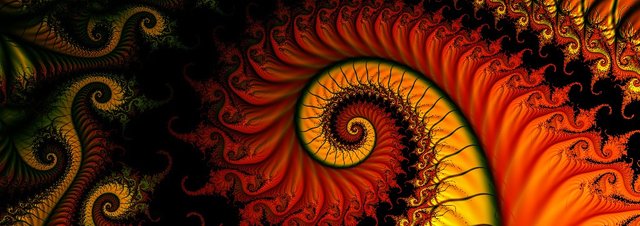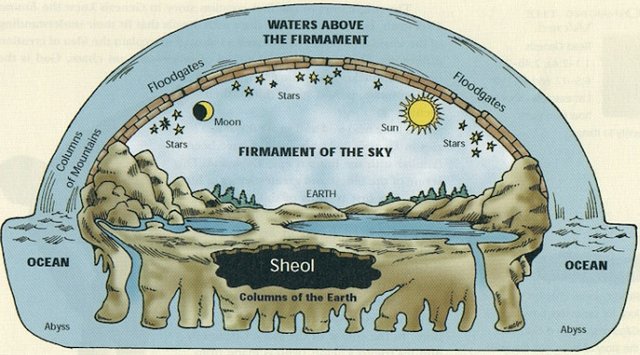To Christians Who Accept Evolution: Is Nature Obviously the Work of an Intelligent Designer? The Authors of the Bible Apparently Thought So.
Romans 1:20
"For since the creation of the world God's invisible qualities--his eternal power and divine nature--have been clearly seen, being understood from what has been made, so that people are without excuse."
This appears to say that there's no excuse for not believing in a creator, because when you look around you at nature, it is obviously the handiwork of a vast intelligence.
It makes sense to me why the authors of scripture thought so, given how little was known about nature and especially the origins and development of life back then.
It would have seemed self-evident that we're living in an engineered world, and that we are all engineered creatures. The etymology of the word "creature" even assumes living things were created.
However, a lot has changed since then. Technological progress has expanded the scope of what it is possible for science to investigate. Science itself was born, refined (as natural philosophy) and became the process we know today long after the Bible was written.
Things the authors of the Bible probably assumed were forever unknowable (except by divine revelation) have since become knowable by scientific investigation and experiment.
One of the things we have discovered this way is that there exist examples of complexity found in nature that look very much like they were designed, but after we investigated how they form, it turned out that they come about in a perfectly comprehensible way due to natural processes acting on matter.
One example of this is the snowflake. If you knew nothing about how they form and had never seen one before, you may well think "this is necessarily an engineered structure. It is geometrically intricate, radially symmetrical, and no two are the same."
However, they are six sided because water molecules consist of three parts (one hydrogen, two oxygen) such that they form hexagons with each other during crystallization, at sufficiently low temperatures. This hexagonal structure at the molecular scale is then reflected on the visible scale as crystallization proceeds, building outwards.
No two are identical because they fall through pockets of warmer and cooler air as they descend, which affects the rate of freezing differently for each, producing unique outcomes.
It is also interesting to note that snowflakes exhibit fractal structuring. Fractals occur in any situation where a structure is accumulated from simple starting conditions, according to simple rules, in a way which builds on itself.
You have probably seen fractal artwork generated this way, or fractal textures, terrain and trees generated this way in videogames, to save labor. This is known as "procedural generation" as it is not the human artist which creates the final product, but the process he devises.
You have probably also seen fractal structures in living things. Some examples include your central nervous system, your cardiopulminary system, the structure of your brain, of your lungs as well, trees, ferns, the veins in leafs, pinecones, pineapples, sunflowers, aloe plants and so on.
This is because they are products of procedural generation. In this case, the process was evolution, which accumulates changes to species over time, from simple starting conditions (the simplest possible self-copying chemical reaction) according to simple rules:
If an individual organism survives long enough to reproduce, the information describing its traits is carried forward to the next generation, and those traits are preserved (including any mutations).
If not, then it isn't, and they aren't.
Any advantage a mutation confers, however small, results in a multi-generational genetic demographic shift in that species until that mutation becomes the new normal. Rinse and repeat, eventually you get something totally different than what you started with.
The significance is that these rules are simple enough to naturally occur. They are just a consequence of the interaction of living things and their environment, as well as competition with one another.
You might say "Well then God used procedural generation, as many artists do today, to save himself some work." This would be consistent with a deity who needs a day to rest. But isn't it an awfully big coincidence that the specific type of complexity seen in nature is the only kind we know of which can naturally occur?
It didn't have to be that way. The universe could be designed in an obviously artificial way, likewise with the Earth. For example, the Earth could be a flat disc covered in a dome with trap doors which let an ocean fall through as rain (as described in scripture) but instead we live on an oblate spheroid we know to have accumulated via gravitational accretion, by watching the same process forming new planets around other stars.
"That's because God did not want it to be obvious that he exists" some of you might say, but that directly contradicts Romans 1:20, which says that the universe was made in such a way that it should be obvious to us that it was created by an intelligent designer.
You can point to stuff like universal constants, the anthropic principle, etc. but was any of that stuff known about at the time scripture was written? It would need to be, for the universe to be so obviously engineered to the average person alive then that he or she would be "without excuse" if they nevertheless concluded that they (and the world) were products of nature.





Interesting thought @alexbeyman. Religion in general should learn of the science. It would make it stronger. The fact is that everything we learned and will learn about evolution, adaptation, molecular structures process of formation, etc.. might be incompatible with certain texts and religious beliefs, but not necessarily with a deist vision for example. Because we are strong enough to find the reasons for these processes, but science can not say what is upstream of all this. Where does this force that holds our universe come from (dark matter, dark energy and matter) ? And I suppose you know, but there are countless factors that have made the earth a cradle of life. Moreover if only one of these was missing, we would not be there to discuss it. Indeed, the probability that all this is due to pure chance is so infinitely small that it seems even more difficult to believe it is chance, instead of a creative and ordering power.
Only if there was only one planet. But there are untold trillions of planets, each of them a chance to get those conditions right by chance. That statistically guarantees some of them will produce life. I actually believe there is a supreme being as well, but you're looking in the wrong place for it.
What I find most compelling is actually the imperfection of nature. Animals evolve in bad ways and even go extinct all the time. Some things that are "natural" aren't even useful or good. Natural selection is beautiful but also a huge mess.
Like me. :3
I'm gonna completely ignore the topic, and simply note that if this was a high school paper, you'd get an A+ on it.
Like wow, that tie back to the beginning. It's like looking at a nicely rolled scroll of information.
:3